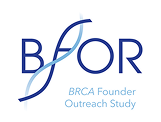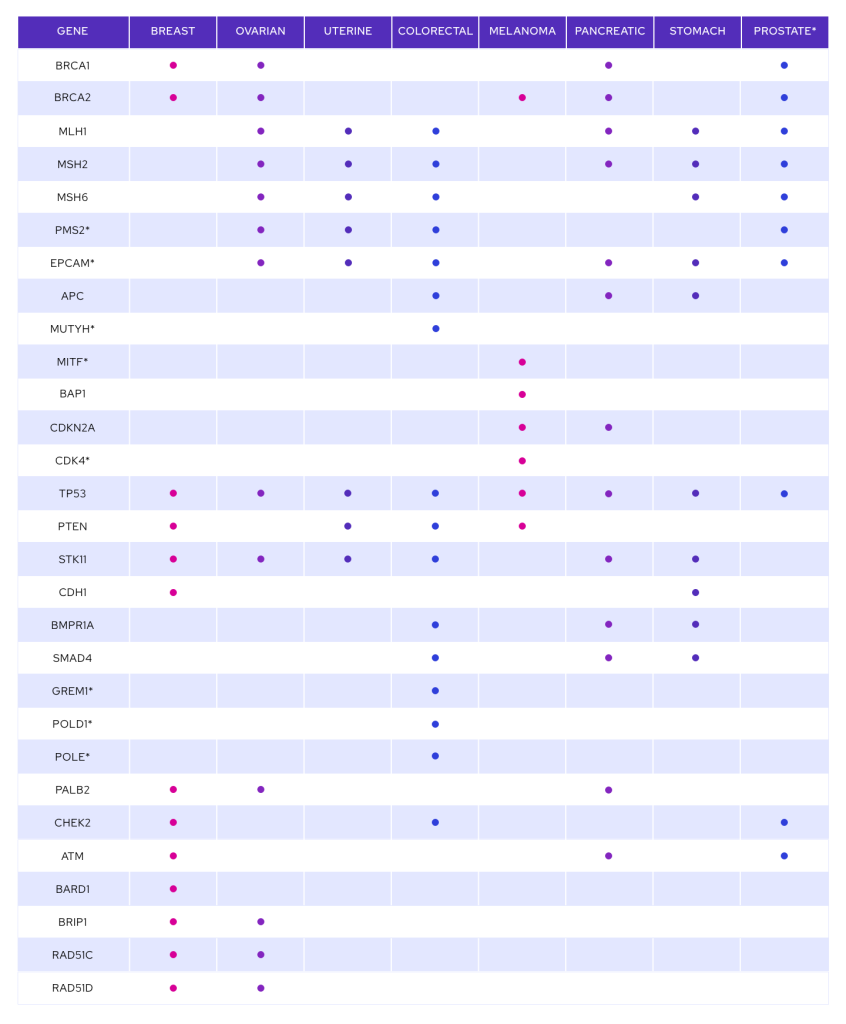LEARN ABOUT BRCA AND OTHER HEREDITARY CANCER GENETIC MUTATIONS
A LITTLE BIT OF GENETICS
1 IN 40 ASHKENAZI JEWS
both men and women, carries a BRCA mutation which can dramatically increase the risk of developing cancer, even with no family history. Most people do not KNOW.
BRCA BASICS
BREAST CANCER
OVARIAN CANCER
PROSTATE CANCER
PANCREATIC CANCER
In addition, you have a 50% chance of passing the BRCA mutation on to each of your children. If you know you have a BRCA mutation, your lifetime risk of developing cancer goes up substantially. But you can take some steps to reduce your risks, but only if you KNOW.

WHO SHOULD BE TESTED FOR BRCA MUTATIONS?
All Ashkenazi Jewish men and women should be tested for BRCA mutations. In fact, as of December 2019, medical guidelines were expanded to include all Ashkenazi Jews with at least 1 of 4 Ashkenazi Jewish grandparents, regardless of family history of cancer. Despite these guidelines, medical insurance has not kept pace and may not cover testing unless there is a family history. Fortunately, through Color Health, Yodeah has been able to secure affordable, clinical-grade testing.
What about other Jewish genetic mutations that increase the risk of cancer?
There are mutations in other genes in both Ashkenazi and Sephardic Jews that can increase cancer risk, for which closer cancer screening is recommended. For example, APC I1307K is a common genetic mutation that is carried by up to 10% of Ashkenazi Jews that slightly increases the risk of colon cancer. Another gene more common in Ashkenazi Jews increases the risk of Lynch Syndrome, a syndrome associated with colon, endometrial, and ovarian cancers. There are also mutations in various genes that are more common in the Sephardic Jewish population. For example, 1 in 80 Sephardic Jews carry a mutation on the ATM gene, which is associated with an elevated risk of breast cancer.

WHY DO I WANT TO KNOW?
IN THE NEWS
Below Are Several Resources You May Find Helpful
To learn more, please visit our YouTube channel to view videos of some of our programs and speakers.












